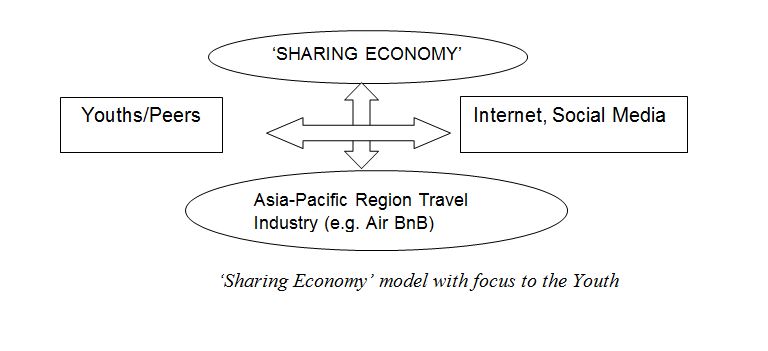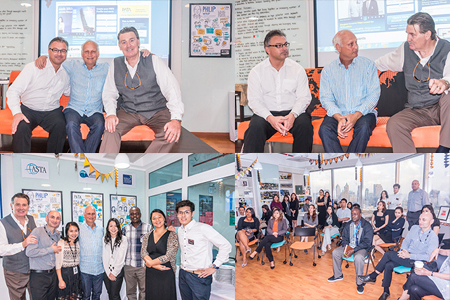Bangkok, Thailand, 2013-11-8 — /travelprnews.com/ — On 31st October 2013, Philip C. Wolf, founder of PhoCusWright (USA) shared his insights about the travel industry with the PATA HQ Staff and Associates; below are important developments taken from the session:
The business world has always been centered on the ‘Business, Customer, and Government’ matrix model; in today’s world, the focus is more on the ‘Peer to Peer’ (P2P) model rather than that of B2B, B2C, or B2G. Thereby this new model of P2P, which is the core of the ‘sharing Economy’, is an integral way of conducting business worldwide. On that note, the use of MOBILE as a means of reaching out to customers is increasingly considered the faster and smarter option compared to the WEB. The future indeed belongs to the MOBILE!
Mobile application affected travel in that some industry professionals and academics already talked about ‘Virtual Tourism’ as today’s smartphones and apps can translate words live on screen, give real-time transportation advice, locate you anywhere in the world, act as your boarding pass, book your dinner reservation, and even help you find a cheap, last-minute hotel room.
Today’s ‘mobile’ travelers are attracted to brands and advertisers, though there are barriers to this growth of mobile technology in travel industry. The Internet has affected traditional tour operators and OTA’s are becoming major sources of travel booking. However, opportunity now goes beyond Internet booking since the introduction of travel apps. Mobile technology also affected the hospitality industry, car industry, airline industry through multiple hotel reservation, Car Sharing, Airline Seats sharing, even apartment sharing applications, etc. These mobile apps introduced new business opportunity in above mentioned industries, by creating a channel through which to sell rooms, cars, airline seats that otherwise would remain unoccupied and unsold.
Young people are used to dealing with mobile search engines and travel portals. It is connected to importance on on-line travel marketing with mobile application. The travel industry could need to develop innovative travel marketing maps for the consumers. At the same time, the traditional travel agency would perhaps change their target from the young to elderly people who are not familiar with the technologies.
The travel industry is as well taking a leaf from the ‘Sharing Economy’ concept, which in principal is Collaborative Consumption. For instance BMW has a car rental with the concept of‘drive a car by the minute’ where one simply rents a car only for a specific journey, from point-A to point-B, rather than per hour or per day. This way there is minimal wastage of resources, making ‘Sharing Economy’ in the travel industry a leading sustainability practice.
Collaborative Consumption is further illustrated by another German Company (Flight Drive) which rents cars from travelers intending to park them at airports for days. In turn, this company rents out the cars to other users then return them to the owners upon flying back from their journeys. It is therefore important that the new travel agency worldwide uses such innovative tools that interact within the entire economic set-up.
In future, the travel industry should integrate into the concept of ‘publicly shared assets’, where for instance there will be no need for individuals to own cars. Instead, one will just rent a car off the streets, use it as requested, and then park it on the street for another person to rent. Obviously this will require designated Apps that are secure but easy to use, plus the need of security measures put in place!
We can clearly see that it will help decrease the pollution by reducing the number of cars sold on to the market, saved time due to the fewer cars on the roads, and convenience in movement – leading to actual profits in businesses – the travel industry among them. These three benefits of a better environment, time-saving and business development are exactly what the travel industry fronts.
If only one example of different types of shared asset shows us how much it can affect travel industry and society, how much more can we expect from all the others put together? This is the power of sharing the assets.
Further, in all these developments, travel Information and data are essentially powerful; and PATA is one of those organisations well placed to provide such information. Its role is empowering the traveler and other organisations in the industry by sharing this information.
In the end, provision of information should take from the business model termed as FREEMIUM (Free + Premium), where a product or service is initially given away for free, then a customer becomes so reliant to it and eventually the need to pay for it!
When planning to travel for instance one often uses ‘Hotwire’ to book a hotel, flight, or car renting since it offers incredibly inexpensive deals. ‘Hotwire’ works with partners that allow it access to their unsold inventory – empty seats on flights, empty hotel rooms, and extra cars on the lot – at big savings. The key point of this website is not only the unbeatable price but also product display strategy. Hotwire customers are only allowed to choose areas that they want to stay. The profile of specific hotel is limited until they book. This is a good example of ‘freemium’ that some have experienced. Given that the world trends are changing to ‘sharing economy’, ‘freemium’ is an essential business model that the travel industry should embrace.
All said it is always important to balance between what is ‘strategically correct’ and what is ‘politically correct’!


